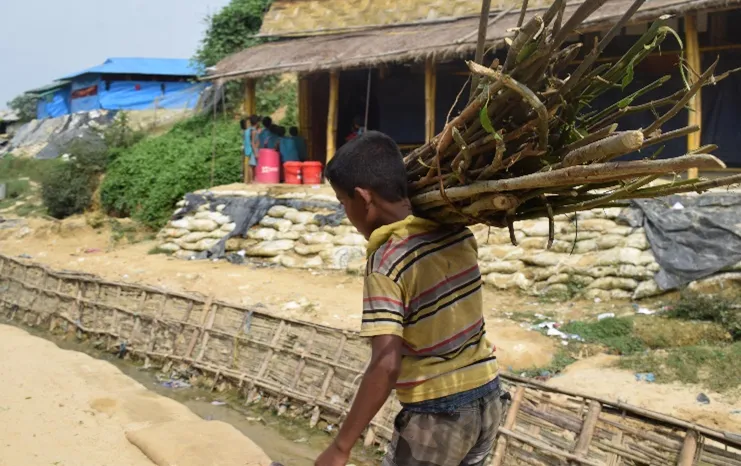Impact Case Study: Supporting refugees with clean cooking fuel in humanitarian crises

Background
Cooking fuel is rarely provided to refugees in crisis situations. In Cox’s Bazar, Bangladesh, 92% of Rohingya refugees and host communities rely on firewood,1 leading to severe deforestation, increased landslide risks and high levels of indoor air pollution. Although previous studies in other countries have examined the benefits of clean cooking fuels, research specific to refugee populations was lacking. The Safe Access to Fuel and Energy Plus (SAFE+) programme and a separate UNHCR programme distributed liquified petroleum gas (LPG) to refugees. They faced funding challenges, highlighting the need for evidence to support policies that ensure refugees have access to cooking fuel, preferably clean cooking fuel, in Cox’s Bazar and other settings.
The study
This mixed-methods observational study assessed the impact of providing LPG for cooking to Rohingya refugees and the resulting reduction in firewood use. It examined effects on health and wellbeing, household economics, security concerns, environmental pressures and disaster risks. The study aimed to generate evidence to support policy change – advocating for LPG funding in both existing and future crises – and to contribute to the scaling-up of clean energy distribution.
By evaluating the SAFE+ programme and LPG distribution in Cox’s Bazar, the study aimed to provide actionable insights for scaling-up clean energy initiatives in humanitarian settings.
Findings and impact
- Evaluated the impact of LPG provision to Rohingya refugees on health, safety and the environment, tracking 1,200 households to assess stove use, air quality and fuel-related violence.
- Improved programme design in Cox’s Bazar
- Positioned LPG distribution for potential carbon credit financing.
- Attracted global interest, shaping future humanitarian energy policies.
Lessons learnt
- Consistent personal engagement with key stakeholders
- Concise, engaging multimedia communications materials suited target audiences
Partners
International Centre for Diarrhoeal Disease Research, Bangladesh (icddr,b); International Organization for Migration (IOM); Stanford University; United Nations High Commission for Refugees (UNHCR)
Methodology
R2HC captures detailed case studies through a process that triangulates and validates evidence on uptake and impact. The case study methodology and full version of this summary case study including references are available on request. Outputs and resources from this study are available on the project page.